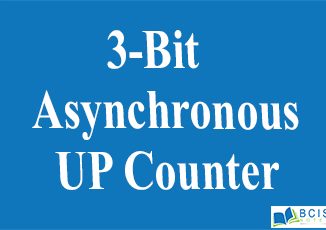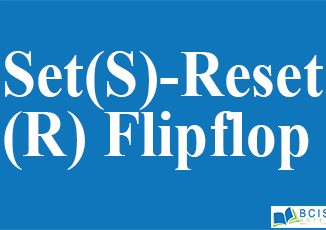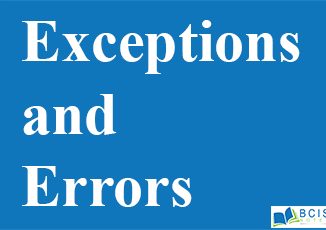
Features of Synchronous || Register and Counters || Bcis Notes
Features of Synchronous Features of Synchronous are as follows. construction is very simple in design. All the flip-flops are interconnected and will be driven by […]

Features of Synchronous Features of Synchronous are as follows. construction is very simple in design. All the flip-flops are interconnected and will be driven by […]

3-Bit Asynchronous UP Counter A 3-bit asynchronous binary counter is shown below. The basic operation is the same as that of the 2-bit asynchronous counter. […]

Types Of Counter The main purpose of the counter is to record the number of occurrence of some input. There are many types of counter […]

Parallel In Serial Out Parallel In Serial Out(PISO) PISO stands for the Parallel Input to Serial Output. The PISO shift register acts in the opposite […]

Clock Sequential Circuit The behavior of a clock sequential circuit is determined from its inputs, outputs, and state of the flip-flops. The clock signal plays […]

J-K Flip-flop And T-Flip-flop J-K Flip-flop And T-Flip-flop both are the types of flip-flops. J-K flip-flop is basically a gated S-R flip-flop with the addition […]

String Buffer String Buffer The String Buffer class is used to create a mutable string. It is same as String class except it is mutable […]

Set(S)-Reset(R) Flipflop The Set(S)-Reset(R) flipflop also knew as S-R latch can be considered as one of the most basic sequential logic circuits possible. This simple […]

Exceptions And Errors Exceptions And Errors are described below. Exceptions An exception (or exceptional event) is a problem that arises during the execution of a […]

Garbage Collection In Java, garbage means unreferenced objects. Garbage Collection is a process of reclaiming the runtime unused memory automatically. In other words, it is […]

Type-casting Assigning a value of one type to a variable of another type is known as Type Casting. In other words, typecasting is a way to […]
Copyright © 2026 | WordPress Theme by MH Themes